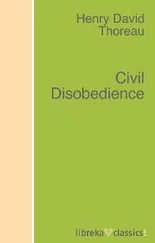4th to March 1st, the time when these estimates were made, though I
lived there more than two years,—not counting potatoes, a little green
corn, and some peas, which I had raised, nor considering the value of
what was on hand at the last date, was
Rice,................... $ 1.73½
Molasses,................ 1.73 Cheapest form of the
saccharine.
Rye meal,................ 1.04¾
Indian meal,............. 0.99¾ Cheaper than rye.
Pork,.................... 0.22
All experiments which failed:
Flour,................... 0.88 Costs more than Indian meal,
both money and trouble.
Sugar,................... 0.80
Lard,.................... 0.65
Apples,.................. 0.25
Dried apple,............. 0.22
Sweet potatoes,.......... 0.10
One pumpkin,............. 0.06
One watermelon,.......... 0.02
Salt,.................... 0.03
Yes, I did eat $8.74, all told; but I should not thus unblushingly
publish my guilt, if I did not know that most of my readers were
equally guilty with myself, and that their deeds would look no better
in print. The next year I sometimes caught a mess of fish for my
dinner, and once I went so far as to slaughter a woodchuck which
ravaged my bean-field,—effect his transmigration, as a Tartar would
say,—and devour him, partly for experiment’s sake; but though it
afforded me a momentary enjoyment, notwithstanding a musky flavor, I
saw that the longest use would not make that a good practice, however
it might seem to have your woodchucks ready dressed by the village
butcher.
Clothing and some incidental expenses within the same dates, though
little can be inferred from this item, amounted to
$8.40¾
Oil and some household utensils,....... 2.00
So that all the pecuniary outgoes, excepting for washing and mending,
which for the most part were done out of the house, and their bills
have not yet been received,—and these are all and more than all the
ways by which money necessarily goes out in this part of the
world,—were
House,................................ $ 28.12½
Farm one year,.......................... 14.72½
Food eight months,...................... 8.74
Clothing, etc., eight months,........... 8.40¾
Oil, &c., eight months,................. 2.00
——————
In all,........................... $ 61.99¾
I address myself now to those of my readers who have a living to get.
And to meet this I have for farm produce sold
$23.44
Earned by day-labor,................... 13.34
——————
In all,............................ $36.78,
which subtracted from the sum of the outgoes leaves a balance of
$25.21¾ on the one side,—this being very nearly the means with which I
started, and the measure of expenses to be incurred,—and on the other,
beside the leisure and independence and health thus secured, a
comfortable house for me as long as I choose to occupy it.
These statistics, however accidental and therefore uninstructive they
may appear, as they have a certain completeness, have a certain value
also. Nothing was given me of which I have not rendered some account.
It appears from the above estimate, that my food alone cost me in money
about twenty-seven cents a week. It was, for nearly two years after
this, rye and Indian meal without yeast, potatoes, rice, a very little
salt pork, molasses, and salt, and my drink water. It was fit that I
should live on rice, mainly, who loved so well the philosophy of India.
To meet the objections of some inveterate cavillers, I may as well
state, that if I dined out occasionally, as I always had done, and I
trust shall have opportunities to do again, it was frequently to the
detriment of my domestic arrangements. But the dining out, being, as I
have stated, a constant element, does not in the least affect a
comparative statement like this.
I learned from my two years’ experience that it would cost incredibly
little trouble to obtain one’s necessary food, even in this latitude;
that a man may use as simple a diet as the animals, and yet retain
health and strength. I have made a satisfactory dinner, satisfactory on
several accounts, simply off a dish of purslane (_Portulaca oleracea_)
which I gathered in my cornfield, boiled and salted. I give the Latin
on account of the savoriness of the trivial name. And pray what more
can a reasonable man desire, in peaceful times, in ordinary noons, than
a sufficient number of ears of green sweet-corn boiled, with the
addition of salt? Even the little variety which I used was a yielding
to the demands of appetite, and not of health. Yet men have come to
such a pass that they frequently starve, not for want of necessaries,
but for want of luxuries; and I know a good woman who thinks that her
son lost his life because he took to drinking water only.
The reader will perceive that I am treating the subject rather from an
economic than a dietetic point of view, and he will not venture to put
my abstemiousness to the test unless he has a well-stocked larder.
Bread I at first made of pure Indian meal and salt, genuine hoe-cakes,
which I baked before my fire out of doors on a shingle or the end of a
stick of timber sawed off in building my house; but it was wont to get
smoked and to have a piny flavor. I tried flour also; but have at last
found a mixture of rye and Indian meal most convenient and agreeable.
In cold weather it was no little amusement to bake several small loaves
of this in succession, tending and turning them as carefully as an
Egyptian his hatching eggs. They were a real cereal fruit which I
ripened, and they had to my senses a fragrance like that of other noble
fruits, which I kept in as long as possible by wrapping them in cloths.
I made a study of the ancient and indispensable art of bread-making,
consulting such authorities as offered, going back to the primitive
days and first invention of the unleavened kind, when from the wildness
of nuts and meats men first reached the mildness and refinement of this
diet, and travelling gradually down in my studies through that
accidental souring of the dough which, it is supposed, taught the
leavening process, and through the various fermentations thereafter,
till I came to “good, sweet, wholesome bread,” the staff of life.
Leaven, which some deem the soul of bread, the _spiritus_ which fills
its cellular tissue, which is religiously preserved like the vestal
fire,—some precious bottle-full, I suppose, first brought over in the
Mayflower, did the business for America, and its influence is still
rising, swelling, spreading, in cerealian billows over the land,—this
seed I regularly and faithfully procured from the village, till at
length one morning I forgot the rules, and scalded my yeast; by which
accident I discovered that even this was not indispensable,—for my
discoveries were not by the synthetic but analytic process,—and I have
gladly omitted it since, though most housewives earnestly assured me
that safe and wholesome bread without yeast might not be, and elderly
people prophesied a speedy decay of the vital forces. Yet I find it not
to be an essential ingredient, and after going without it for a year am
still in the land of the living; and I am glad to escape the
trivialness of carrying a bottle-full in my pocket, which would
sometimes pop and discharge its contents to my discomfiture. It is
Читать дальше












